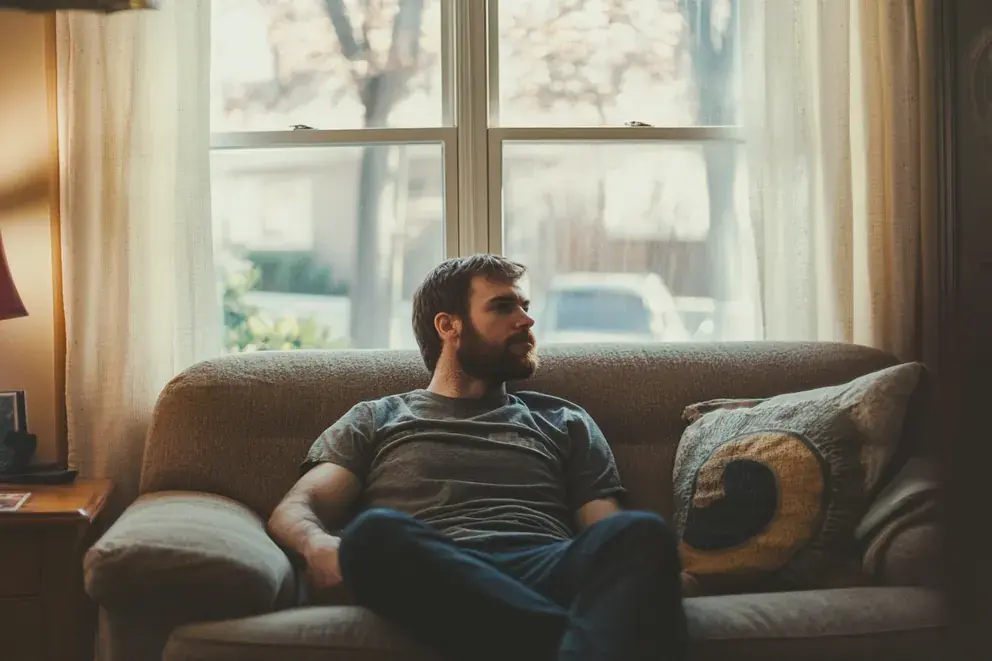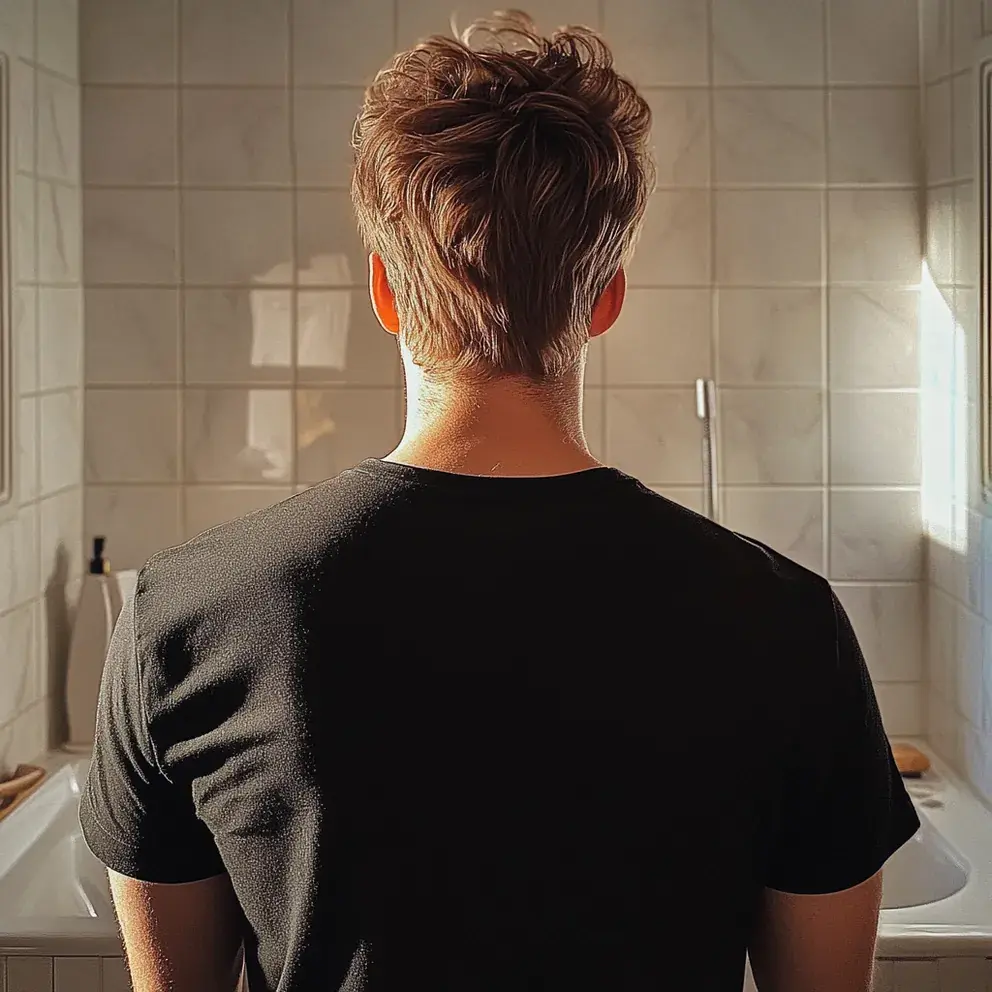
Scientists Explain How Sleeping on Your Left Side Affects Your Health
🛏️ The Best and Worst Sleeping Positions for Your Health
Getting quality sleep is essential for physical and mental well-being—but did you know that the way you sleep can significantly impact your health? From digestion and circulation to spinal alignment and brain detoxification, your sleeping position plays a surprisingly powerful role in how your body functions overnight.
❌ Worst Sleeping Position: On Your Stomach
Sleeping on your stomach is widely considered the least healthy position. It flattens the natural curve of your spine, strains your neck, and compresses muscles and joints, which can lead to:
-
Back and shoulder pain
-
Numbness or tingling
-
Increased pressure on internal organs
If you can’t sleep any other way, place a pillow under your pelvis to reduce strain and avoid using a pillow under your head unless it feels comfortable. For chronic back pain, consider incorporating gentle exercises to strengthen your core and improve posture.
✅ Best Sleeping Position: On Your Side (Especially the Left)
Side sleeping is the most popular and often the healthiest position. Around 63% of Americans prefer it, and for good reason:
-
Keeps airways open
-
Supports spinal alignment
-
Reduces snoring
-
Improves digestion
Left-side sleeping offers even more benefits:
🌋 Relieves Heartburn and Acid Reflux
Studies show that sleeping on the left side can reduce acid reflux symptoms, while sleeping on the right may worsen them. This is likely due to the position of the stomach and esophagus.
🤰 Ideal for Pregnancy
Doctors recommend left-side sleeping during pregnancy to improve blood flow to the placenta and reduce pressure on the liver. It also helps prevent swelling in the legs and feet.
😴 Prevents Snoring
Sleeping on your back can cause your tongue to fall backward, obstructing your airway and leading to snoring. Side sleeping helps keep airways clear and reduces sleep disruptions.
🧠 Supports Brain Health
Research from Stony Brook University suggests that side sleeping may help the brain’s glymphatic system remove waste more efficiently. This process is crucial for reducing the risk of Alzheimer’s and other neurological diseases.
🪨 May Prevent Kidney Stones
A study published in BMJ found that people who consistently sleep on one side may be more prone to kidney stones on that side. Alternating sides can help maintain balanced kidney function and reduce recurrence.
🧍♂️ Sleeping on Your Back: Mixed Benefits
Sleeping on your back keeps the spine, neck, and head in a neutral position, which can be good for posture. However, it’s not ideal for:
-
People who snore
-
Those with sleep apnea
-
Pregnant women in later stages
To improve comfort, place a pillow under your knees and a small towel under your lower back. Always support your neck with a well-fitted pillow.
🌙 7 Extra Tips to Improve Sleep Quality
No matter your sleeping position, your sleep environment matters. Here are seven proven ways to sleep better:
-
Eat sleep-promoting foods like bananas, almonds, and oats.
-
Use calming essential oils such as lavender or chamomile.
-
Practice deep breathing or light stretching before bed.
-
Try herbal remedies like valerian root or passionflower.
-
Use mental relaxation techniques to quiet a busy mind.
-
Mix honey and Himalayan salt for a natural sleep aid.
-
Keep air-purifying plants like snake plant or peace lily in your bedroom.
🧠 Final Thoughts
Your sleeping position isn’t just about comfort—it’s a key factor in your long-term health. Whether you’re trying to reduce snoring, improve digestion, or support brain detox, small adjustments to how you sleep can make a big difference. Consider using pillows strategically, alternating sides, and creating a calming bedtime routine to maximize the benefits of your rest.
News in the same category


A Kentucky State Trooper’s Quiet Act of Compassion That Brightened a Family’s Day.

I Let My Lonely Neighbor Stay with Me While His House Was Being Repaired After the Storm, and It Didn't Take Long to Understand Why He Was Alone – Story of the Day

One Day, I Saw a 'Just Had a Baby' Sticker on My Boyfriend's Car, but We'd Never Had a Baby – Story of the Day

3 Family Drama Stories That Will Leave You Speechless

Husband Sent Me & the Kids to a Hotel for a Week – I Thought He Was Cheating, but the Truth Was Unbelievable

The Race That Was Won With Honor, Not Speed

Eyes Full of Hope, Heart Full of Trust.

I Haven’t Seen My Daughter in 13 Years — Then a Letter Arrived from a Grandson I Never Knew

Wife Left Husband to Raise Their Baby Alone — 20 Years Later, She Reached Out to Their Daughter

My Stepmom Crashed My Birthday and Made the Most Ridiculous Demand

After We Bought Our Dream Home, My Husband Began Visiting the Old Neighbor Lady Who 'Needed a Man's Help' – One Day I Saw What He Was Really Doing There

My Stepmom Came to My Wedding in a White Dress, Saying She 'Deserves Attention Too' – So My Husband Taught Her a Real Lesson

Cop Turns the Tables on Lemonade Stand Complaint

Critically Endangered Clouded Leopard Cub Born at Nashville Zoo to Be Hand-Reared for Survival.

My Entitled Sister Laughed When Her Kids Broke My Work $2,200 iPad — Instead I Taught Her a Lesson of Responsibility

My MIL Asked Me to Give Her Access to Our Baby Monitor So She Could Feel Closer to Her Grandkid – But Her Real Reason Made Me Go Pale

For Three Years, My Husband Missed Every One of My Birthdays, I Only Learned the Truth After We Divorced — Story of the Day

I Thought I Was a Wedding Guest – My Sister Just Wanted a Free Driver
News Post

A Stranger’s Compassion That Changed Everything.

A Kentucky State Trooper’s Quiet Act of Compassion That Brightened a Family’s Day.

I Let My Lonely Neighbor Stay with Me While His House Was Being Repaired After the Storm, and It Didn't Take Long to Understand Why He Was Alone – Story of the Day

One Day, I Saw a 'Just Had a Baby' Sticker on My Boyfriend's Car, but We'd Never Had a Baby – Story of the Day

3 Family Drama Stories That Will Leave You Speechless

Top 13 Inflammatory Foods You Should Avoid (Replace with These)

Why You Should Drink THIS Warm Turmeric Water In The Morning

14 Warning Signs of Low Magnesium Levels and What to Do About It (Science Based)

Husband Sent Me & the Kids to a Hotel for a Week – I Thought He Was Cheating, but the Truth Was Unbelievable

The Six Signs Of A Potassium Deficiency – And How To Fix It

Liver Damage Linked to Supplement Use Is Surging, Sparking Scientific Alarm

Get Rid of Throat Mucus Faster With These Home Treatments (Evidence Based)

14 Warning Signs of Low Magnesium Levels and What to Do About It (Science Based)

The Race That Was Won With Honor, Not Speed

Powerful Healing Benefits of Cloves You Probably Didn’t Know: Natural Remedies for Improved Wellness
Cloves are more than just a fragrant spice — they are a time-tested natural remedy packed with healing properties. From soothing digestive troubles to protecting against infections, this tiny bud can be your daily wellness booster.

Bizarre reason ChatGPT will always refuse this one simple request

Reason Mark Zuckerberg Just Spent $15,000,000,000 to Hire This 28-Year-Old ‘College Drop Out’ for Meta

Cut a lemon in four and keep it in your bedroom overnight – the reason is brilliant
This lemon trick is a small change that makes a big difference.

What Does a Bl00d Clot Feel Like? Experts Share Common Signs and Symptoms
Every year, close to a million Americans face the dangers of blood clots — often without realizing it until it’s almost too late. Recognizing the early warning signs could be the difference between life-saving treatment and a medical emergency.
